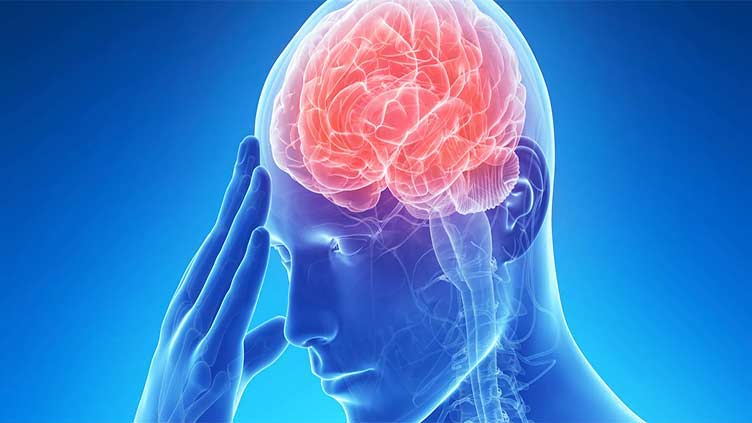Psychosocial stress, loss of control associated with a higher risk

Psychosocial stress, loss of control associated with a higher risk
ISLAMABAD (Online) - Psychosocial stress is different from other forms of stress, such as physiological stress, because it arises from our interactions with others.
This form of stress results from an imbalance between threatening experiences in our daily lives and our ability to handle them emotionally.
A recent study shows an association between experiencing psychosocial stress and an increased risk of all types of stroke and stroke subtypes, including ischemic and hemorrhagic stroke.
The study determined the association between psychosocial stress and stroke by analyzing data from INTERSTROKE, an international retrospective case-control study.
The study’s conclusions align with other research linking stress from social threats and stroke, including research from 2015 and 2019.
Lead study author Catriona Reddin, MB, of the University of Galway’s College of Medicine, Nursing, and Health Sciences, told Medical News Today:
“We provide evidence from high-, middle-, and low-income countries. Previous evidence was predominantly from studies performed in high-income countries.”
The study findings were recently published in JAMA Network Open.
Analyzing data for stress and stroke risk
Dr. Reddin and her colleagues examined stressors and potential associations in various contexts.
These stressors included home stress, work stress, financial stress, and the occurrence of stressful life events.
While there is considerable evidence to suggest an association between stress and stroke risk, the new study includes a more diverse range of participants than in earlier research.
For context, INTERSTROKE data comprises risk factors for a first acute stroke in residents of 32 countries in Asia, North and South America, Europe, Australia, the Middle East, and Africa.
The analysis included 13,350 participants who had strokes and 13,462 controls who did not.
INTERSTROKE participants self-reported psychosocial stresses and stressful events they had experienced in the previous year, both at home and at work.
Yet because the study collected data for stressful experiences from a participant’s previous year, there is no data to consider stroke risk beyond that time frame.
Examples of stressful life events
INTERSTROKE recorded participants’ experiences with the previous year’s stressful events, including:
• marital separation or divorce
• loss of a job or retirement
• loss of a crop or other business failure
• violence
• major intra-family conflict
• major personal injury or illness
• death or major illness of a close family member
• death of a spouse
• other major stressors
Impact of major stressful life events
The analysis found that the occurrence of a major stressful life event increased the risk of a first stroke by 17% compared to control participants.
Two or more stressful life events increased stroke risk by 31%.
The association was consistent for all the contexts explored in the study: work stress, home stress, and financial stress.
The study also found that psychosocial stress may be less damaging for people with a sense of control over their situations.
“Higher locus of control at work and home diminished the magnitude of association between context-specific psychosocial stress and odds of acute stroke,” Dr. Reddin said.
“In those who reported severe work stress, the increase in [the] risk of stroke was smaller in those who reported high work control compared to those who reported low work control.”
Gloria Wong-Padoongpatt, Ph.D., assistant professor of psychology at the University of Nevada, Las Vegas, not involved in the study, agreed that having a sense of control can help mitigate stress.
“What I am gathering from my [own] research is that ambiguous threats, like micro-aggressions, are insidiously stressful, and things that are perceived as ‘out of my control’ are stressful. Therefore, changing thoughts and rationalizing situations allows people to feel empowered and [have a greater] sense of control, which seems to alleviate the stress.”
– Gloria Wong-Padoongpatt, psychology professor
Tips for managing psychosocial stress
Dr. Wong-Padoongpatt noted that people often respond to stress as a threat.
“If you see the stressor as a full threat to identity, livelihood, etc., it eats away at the person,” she said.
“However, if you see the same stressor as a challenge and something you can change, then the person feels empowered, and it turns it into a positive stress.”
Reframing stressors as a challenge instead of a threat can “set them up for a positive pathway,” Dr. Wong-Padoongpatt noted.
Here are a few tools you can use to help you cope with stressful life events:
• Pause: Try to put the situation on hold for a moment to give yourself some emotional reaction time in which to process the stressor.
• Breathe: Calm your response with box breathing or other stress-relieving breathing techniques. Inhale slowly, hold your breath for a few moments, then release and repeat.
• Move: Freezing up is a natural response to a threat. Move a little to unfreeze yourself. Pay attention to your shoulders. If they are clenched or raised, try to relax them.
• Take it one problem at a time: A single stressor may threaten your sense of well-being in more than one way, making a difficult event initially seem more consequential than it may actually be. Try to separate yourself from the problems and their potential effects, thinking through each problem individually.
• Focus on one stressor at a time: If you are suddenly confronted by two stressors, for example, try setting aside one for the moment. Come back to it once you have got a handle on the first one.
Finally, if you find that you cannot effectively manage your stress on your own, you may wish to talk with a mental health professional for support and guidance.

